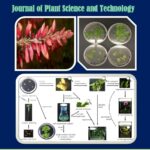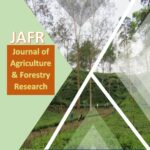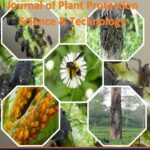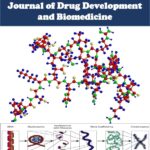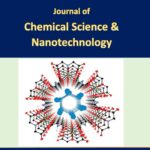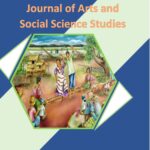Open Access Policy
Open Access (OA) has become an important way to make research findings freely available for anyone to access and view. Open Access to research data makes data more widely available for re-use by others to support research, innovation and wider public use. All the articles published in SARPO journals are made freely accessible online immediately after publication in an easily readable format, without any subscription or registration barrier. SARPO calls for all author accepted manuscripts of journal articles or conference proceedings to be deposited in an Open Access repository at the time of acceptance for publication.
Peer-review Policy
The manuscript will be reviewed by two suitable experts in respective subject area. The reports of both the reviewers will be considered when deciding on acceptance/revision or rejection of a manuscript. Editor-In-Chief will decide promptly whether to accept, reject, or request revisions of referred papers based on the reviews and editorial insight of the supporting journals. In addition, Editors will have the option of seeking additional reviews when needed. Authors will be advised when Editors decide further review is needed.
All research articles published in SARPO journals undergo full peer review policy. Key characteristics of which are listed below:
- All research articles are reviewed by at least two suitably qualified experts.
- All publication decisions are made by the journals’ Editors-in-Chief
- Members of the Editorial Boards advice and guidance to the Editors-in-Chief generally and to assist decision making on specific submissions
- Editorial Assistants provide the administrative support that allows maintaining the integrity of peer review while delivering rapid turn around and maximum efficiency to authors, reviewers and editors alike.
- SARPO Journals additionally benefit through the manuscript referral process from the high- quality peer review conducted by established journals.
Copyright Policy
All the articles published in SARPO journals will be distributed under a creative commons license. The journal allows the author(s) to hold the copyright of their work (all usages allowed except for commercial purpose).
Author Self-Archiving Policy
The Journal allows the authors to self-archive pre-print, post-print and publisher’s version of the article in any OAI-compliant repository. With no embargo period, authors are permitted to deposit the complimentary copy of their manuscript in their institutional repository or in repositories designated by their funding body, provided they refer to the published IET version.
Plagiarism Policy
According to Wikipedia, plagiarism is the “wrongful appropriation and purloining and publication of another author’s language, thoughts, ideas, or expressions, and the representation of them as one’s own original work”; while self-plagiarism is “the reuse of significant, identical, or nearly identical portions of one’s own work without acknowledging that one is doing so or without citing the original work”.
By submitting articles to SARPO journals the author attests that none of the part of manuscript is plagiarized from other sources. Proper reference is provided for all contents extracted from other sources. The authors should ensure that they have written entirely original works, and if the authors have used the work and/or words of others that this has been appropriately cited or quoted.
If the Editors or reviewers suspect plagiarism, submitted articles will be checked with plagiarism detection software. If plagiarism is strongly suggested, then the authors will be contacted for an explanation. If the authors express ignorance or unawareness, the Editors may allow re-submission and the authors warned as to the seriousness of plagiarism. In the case of a submitted article having been found to have been totally or substantially published elsewhere, the submitted article is rejected outright. Authors will be contacted for an explanation and their institution may be contacted. The Editors may ban the authors from submitting to the Journal for a defined time period. The Editors will use the COPE (Committee on Publications Ethics) guidelines (www.publicationsethics.org).
If an article accepted and published in the SARPO journals is subsequently discovered to have previously been published substantially or in full elsewhere, the authors will be contacted for an explanation. Their institutions may be notified and the authors maybe banned from future submissions for a specified time period. Additionally, the offending article in the Journal will be retracted from electronic data bases and a formal retraction notice, with full reasons, will be published in the Journal.
If it is discovered that an article published in the SARPO journals is subsequently substantially or in full published in another journal, the Editor of that journal will be contacted with full details.
Disclaimer
The author(s) of the articles published in SARPO Journals are solely responsible for the content of the article. Facts and opinions in articles published on SARPO Journals are solely the personal statements of respective authors. Authors are responsible for all contents in their article(s) including accuracy of the facts, statements, citing resources, and so on. Editors of SARPO Journals disclaim any liability of violations of other parties’ rights, or any damage incurred as a consequence to use or apply any of the contents of articles. Material submitted to SARPO Journals must be original and not published or submitted for publication elsewhere. Authors submitting a contribution to SARPO Journals who have related material under consideration or in press elsewhere should upload a clearly marked copy at the time of submission and draw the editor’s attention to it in their cover letter. If a part of a contribution that an author wishes to submit to SARPO Journals has appeared or will appear elsewhere, the author must specify the details in the cover letter. Consideration by the SARPO Journals is possible if the main result, conclusion, or implications are not apparent from the other work, or if there are other factors, for example if the other work is published in a language other than English. Author is responsible to get permission from previous publisher or copyright holder if an author is re-using any part of paper (i.e. figure or


